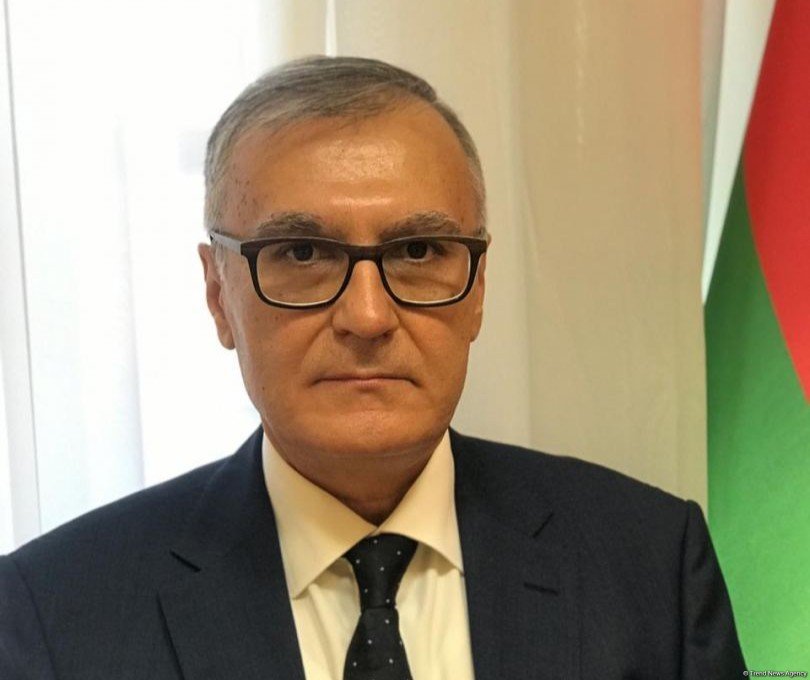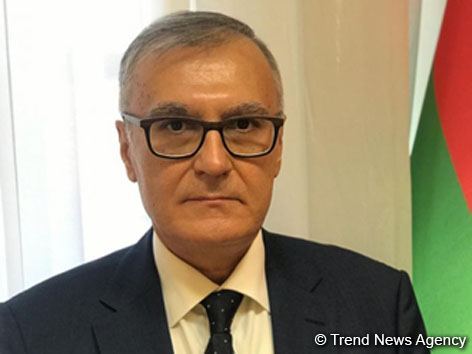BAKU, Azerbaijan, May 26. In October 2013, a European Championship qualifying match took place in Baku between the national teams of Azerbaijan and Russia. Those familiar with football know it’s a sport marked by intense energy—not just on the field, but especially in the stands. Passionate fans, heightened emotions, the euphoria of victory, and the bitterness of defeat—all of this creates a volatile atmosphere. Add in the usual brawls between rival fan groups, and you’ve got a recipe for chaos. That’s why police are always on high alert during such events.
The game ended 1:0 in favor of the guests, and fans began calmly filtering out of the stadium. Everything seemed orderly until one individual suddenly jumped onto a seat, shouting obscenities directed at the entire Azerbaijani nation, before quickly vanishing into the crowd. As expected, tensions flared instantly. It took considerable effort to regain control of the situation.
Later it turned out that the provocateur was none other than Konstantin Malofeev—the self-styled “Orthodox oligarch.” The same Malofeev who owns factories, newspapers, steamships, and a mini-media empire branded as “Tsargrad.” Those who paid attention in school will recall that “Tsargrad” is a Russian-invented name for Istanbul—formerly Constantinople—and a word often used by those still harboring fantasies of its conquest by Russia.
It’s this very channel that’s now conducting an “information war without rules” not only against Azerbaijan, but also against the Azerbaijani diaspora in Russia. In particular, Moscow’s Sadovod and Food City markets have become targets of Malofeev’s ire. The reason? Far too many “migrants” for his liking. He seems convinced that these migrants are the root of all Russia’s troubles. In his view, they enjoy too many rights—even the language exam they take is, allegedly, easier than the national university entrance exam.
Naturally, Malofeev doesn’t bother to consider that a construction worker might not need the same level of Russian proficiency as a future university student. Instead, he rants about how migrants should come “to work, not to reproduce.” One can only guess what kind of mechanism he envisions to control their birth rates. The very existence of organized diasporas drives him into a frenzy—he sees them as “ethnic enclaves” operating as states within a state and demands they be outlawed. Yet oddly, Russian communities abroad never seem to trouble him. They’re acceptable—others are not.
To be fair, Malofeev and his associates don’t reserve their venom solely for migrants. On his channel’s “Answers” segment, Orthodox priest Andrei Tkachev once proclaimed that “a man should break a woman over his knee, knock off her horns, crush her, grind her down... he should break her one hundred percent.”
As a final flourish, consider this: Malofeev’s company, Russagroprom,” a subsidiary of his Marshal Group, took out a $225 million loan from VTB Bank to acquire nine dairy plants. It promptly declared bankruptcy. VTB attempted to sell the plants, only to discover they were worth just $40 million. In total, Marshal Group reportedly funneled over half a billion dollars—judging by the debts of its collapsed firms. Yet astonishingly, VTB forgave the fraud, praising Malofeev’s “civic stance.” Was it his call to stop migrants from giving birth in Russian hospitals? Or perhaps his endorsement of “breaking women over the knee”?
It’s time to lay things out plainly. Faith is a personal matter. One can be religious or not, devout or casual, a regular church- or mosquegoer—or neither. But no level of religious devotion should ever serve as a shield for financial fraud.
So what are we left with? Malofeev is, first and foremost, an open fascist. A proponent of “Russia for Russians.” Second, a religious fanatic. Third, a provocateur. And fourth, a fraudster. It’s hard to imagine entrusting someone like this with even cleaning a public restroom, let alone giving him airtime and political influence. Yet, in Russia, Malofeev has access to high offices, grants interviews, and runs a television channel that no one rushes to shut down—despite inciting ethnic hatred and stirring up political provocation.
This is no longer just a matter of Malofeev personally. It raises a deeper question: what is—and isn’t—allowed to figures like him within Russia? And clearly, everything surrounding this “Orthodox oligarch-provocateur” does nothing to help Russia’s international image.







